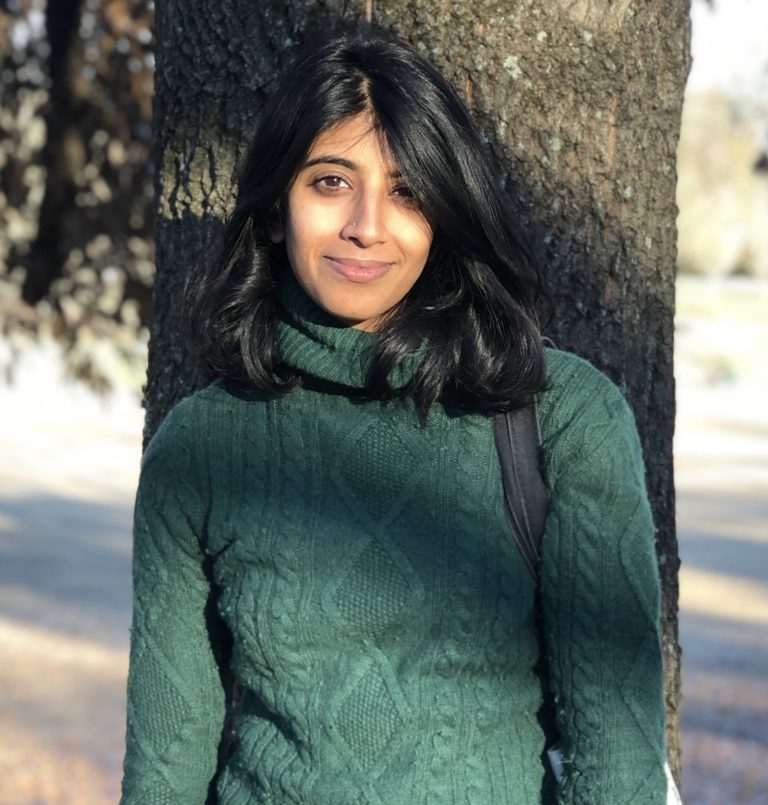SANJENA SATHIAN

Sanjena Sathian is the author of Gold Diggers, which was named a Top 10 Best Book of 2021 by the Washington Post, longlisted for the Center for Fiction’s First Novel Prize, chosen as an Amazon Best of 2021 pick, a Good Morning America Buzz pick, and more. She is working on the television adaptation with Mindy Kaling’s production company, Kaling International. Her award-winning short fiction also appears in The Atlantic, Conjunctions, Boulevard, and more, and she’s written nonfiction for The New Yorker, The New York Times, The Los Angeles Times, The Washington Post, TIME, and more. She’s a graduate of the Iowa Writers' Workshop, from which she received a Michener-Copernicus Fellowship, and where she was supported by the Paul and Daisy Soros Fellowships for New Americans.
Read more about Sanjena on her website.
SESSION: Locating Strangeness in Realist and Unreal Fiction
A man wakes up as a giant bug. A nose earns a promotion. A woman suspects her husband has been replaced by his doppelgänger. A 'hysterical' wife is consumed by her wallpaper. In art, anything can happen. And adding elements of unreality, absurdity, artifice, magical thinking, or the "Protean," as Salman Rushdie has put it, can sometimes allow us to *better* articulate reality than reality itself. How does this work, and why is it true?
Sanjena Sathian, who writes both real and unreal fiction, will discuss modes of accessing strangeness while maintaining access to true, concrete, physical reality in fiction. Drawing on the Russian formalist Viktor Shklovksy's notion of estrangement, she'll discuss how to balance the strange and the real in realist and nonrealist writing alike.
Together, we'll do a guided writing exercise inspired by the techniques of cartoonist and novelist Lynda Barry. Afterward, we'll look at published writing in-class as part of a craft lecture. No preparation is required, but participation is encouraged.
While this class is focused on techniques of fiction, the writing exercise is genre-agnostic, and the practice of estrangement may be useful to writers who write nonfiction or poetry as well. In-class texts will include poetry and non-fiction (think Sylvia Plath and Joan Didion).
